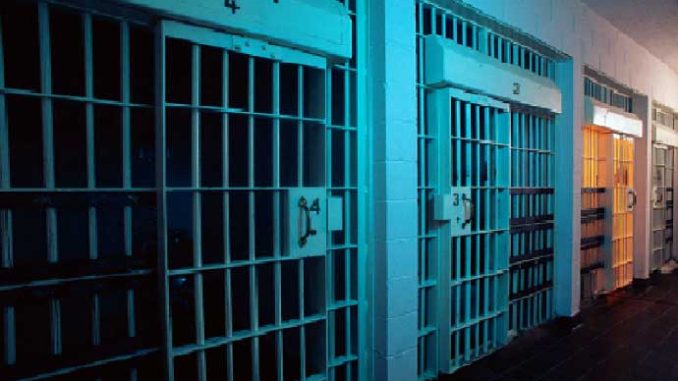
The Arizona Department of Corrections (ADC) must turn over the names of prisoners tested for COVID-19 so that attorneys handling a class-action lawsuit against the state’s prison healthcare system can monitor the treatment being provided, according to a federal judge’s order.
U.S. Senior District Judge Roslyn Silver ordered ADC to provide attorneys from the ACLU of Arizona with the names, identification numbers, and results of all prisoners tested for COVID-19. The report must be submitted every week, the judge ruled.
“The reporting of weekly information regarding COVID-19 testing and treatment is relevant to ascertaining Defendants’ performance on a number of performance measures that are presently before the Court for enforcement,” Silver noted, referring to an ongoing 2012 lawsuit challenging ADC’s healthcare system.
Last week ADC reported 1,854 inmates have been tested for COVID-19 out of more than 40,000 inmates. Of those, less than 300 were positive or pending final results.
According to ADC, the largest number of infected inmates are found at the Arizona State Prison Complex in Yuma. Officials there tested nearly 1,200 staff members at the end of May, but only 11 percent of the nearly 4,800 inmates at the complex have been tested, yielding 97 confirmed positive results.
ADC also reports four inmate deaths connected to COVID-19 while three others are tentatively suspected to be connected. All but two of those inmates were housed at ASPC -Florence. As a result, ADC Director David Shinn has announced that COVID-19 antibody (serology) testing will be conducted onsite at the complex June 16 to June 18, but only for ADC employees and contract staff.
“This is an exceptional opportunity for the Department to provide COVID-19 testing to our brave frontline men and women who continue to serve the public as first responders throughout the pandemic,” Shinn said. “I wish to thank ADHS director, Dr. Cara Christ for her continued support and guidance for the thousands of essential employees doing their job each day in our state facilities.”
In March, the ACLU was denied its request for an emergency court order that would have required ADC officials to “develop and implement a plan for the prevention and management of COVID-19 in the State’s prisons,” and to allow an independent expert in correctional healthcare to review the plan.
“There is a real and immediate risk that class members incarcerated in Arizona prisons will die or suffered serious medical injuries due to Defendants’ failure to prepare for the COVID-19 pandemic,” the emergency motion noted. “The Court should order Defendants to take this problem seriously and take all appropriate actions to protect class members.”
The motion, which cited “a series of uninformed, flippant, and implausible comments” about COVID-19 by the ASPC-Florence medical director, also requested that soap and other hygiene supplies be provided to prisoners free of charge, and that fees charged for inmate requested medical care be suspended.
Although the judge denied the COVID-19 planning request, the ACLU had better luck proving that information on the actual testing and treatment of infected patients is something they should have access to as part of the 2012 lawsuit.
The ACLU has also called upon federal and state officials to release individuals at high risk of severe illness or death from COVID-19 who are in pretrial detention or serving sentences for nonviolent crimes. The organization also wants Governor Doug Ducey to agree to hold state prison officials accountable for its response to the pandemic.
“When someone enters state jails and prisons they do not stop being part of our society,” ACLU of Arizona Criminal Justice Staff Attorney Jared Keenan said. “More than 40,000 people live in state prisons where the Arizona Department of Corrections has proven itself repeatedly to be incapable of providing basic medical care. Our local jails also have disturbing histories of failing to protect people from disease and illness,”
Then earlier this month, Keenan sent Maricopa County Sheriff Paul Penzone a letter accusing officials of the state’s largest jail system of ignoring the public health danger posed by COVID-19. The letter demanded Penzone initiate inmate testing at the county’s five jail facilities.
Penzone responded to Keenan with information on protocols being followed within the jail system to identify COVID-19 infected inmates and to control any outbreak. However, Penzone pointed out Keenan was addressing his concerns to the wrong person – that medical treatment at the jail facilities is provided by a county department which Penzone does not regulate.
“With a minimal amount of research, you would be aware that MCSO does not control testing or any medical treatment in its facilities,” Penzone told Keenan. “Maricopa County Correctional Health Services (CHS), a separate county agency, holds that responsibility.”
Penzone’s response noted that Maricopa County’s inmate population has dropped from more than 7,000 at the beginning of the year to about 4,500 earlier this month. Meanwhile, court documents revealed there were only 6 confirmed COVID-19 cases in Maricopa County’s jails in late May but more than 200 as of June 9.
It’s unclear whether the sharp increase is due to actual new infections or just expanded testing of previously infected inmates. The documents also show that Maricopa County officials were waiting on another 260 inmate test results as of last week.
